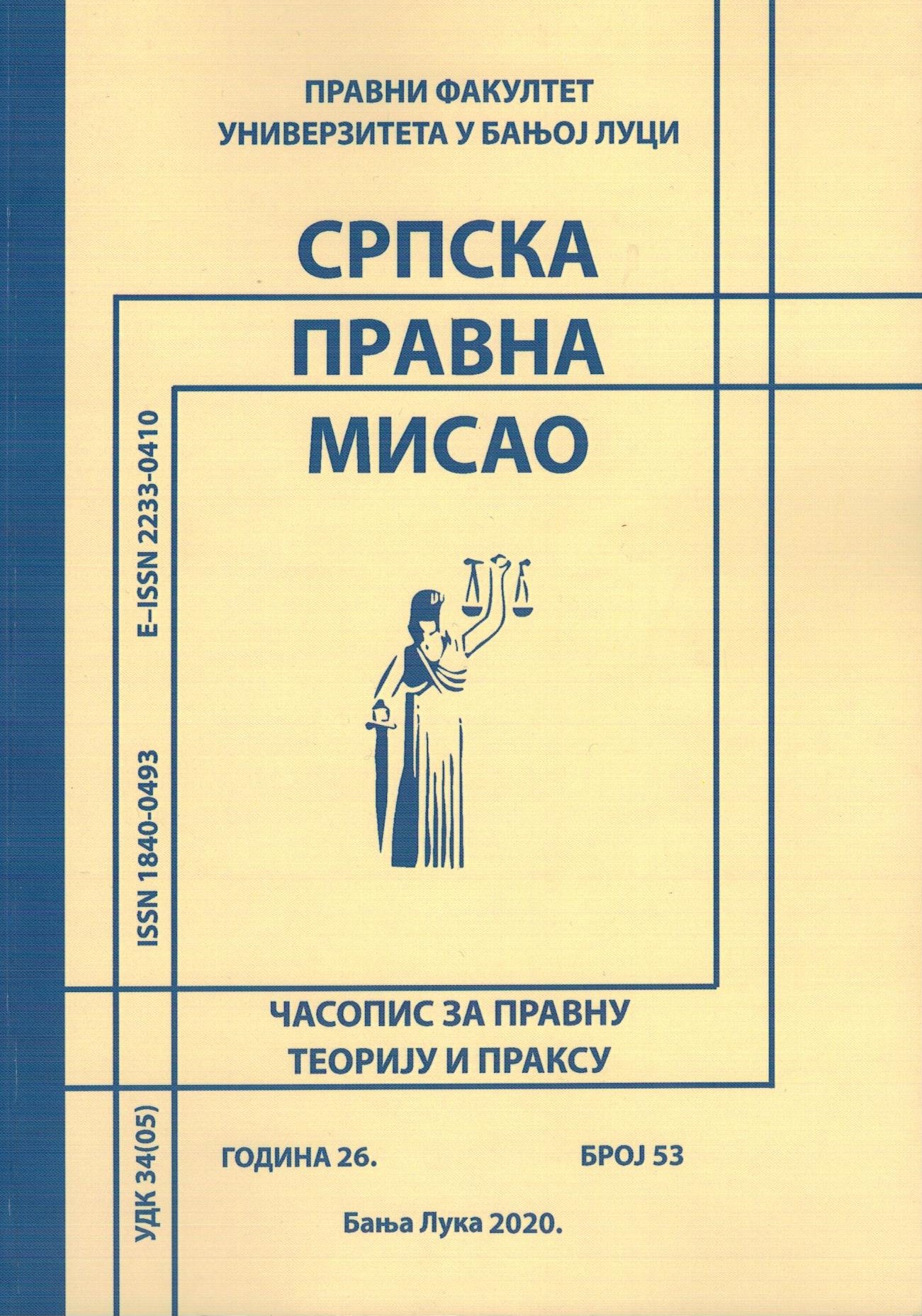
We kindly inform you that, as long as the subject affiliation of our 300.000+ articles is in progress, you might get unsufficient or no results on your third level or second level search. In this case, please broaden your search criteria.

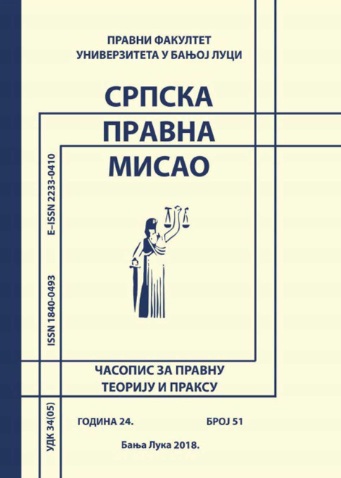
This paper deals with the analysis of normative framework and case-law regarding freedom of expression, defined by Art. 10 of the European Convention on Human Rights and the existing relation between freedom of expression and other rights provided by the Convention in Bosnia and Herzegovina. Related to that, the emphasis is placed on freedom of the media in general, balancing opposite rights mechanisms, defamation, protection of sources, and, as an issue that is getting very important, legal status of whistleblowers.
More...
In modern states normative function is divided between legislative and executive power. In view of the question of conditions under which executive power performs normative function, i.e. passes general legal acts and types of acts, it should be noted that executive power, represents a power with its own constitutional functions and authorities for the performance of those functions. A regulation is a basic form of normative activity of the executive power, its typical, and, at the same time, most important general legal act. In defining the concept of decree, a number of different answers to some of the basic questions relevant for its determination can be found in legal literature and theory, with evident disagreement among theoreticians over certain issues, such as: legal nature of a regulation, the basis and area of regulation making body, and the qualification of regulations.
More...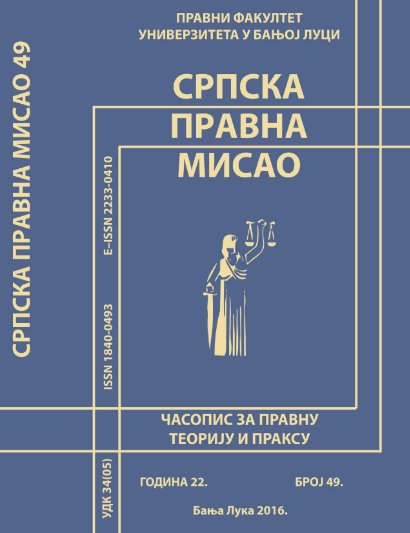
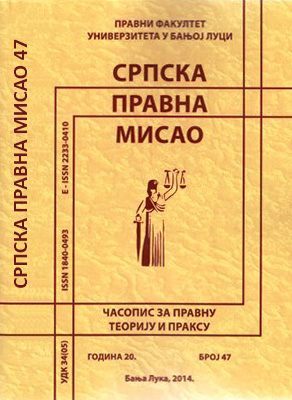

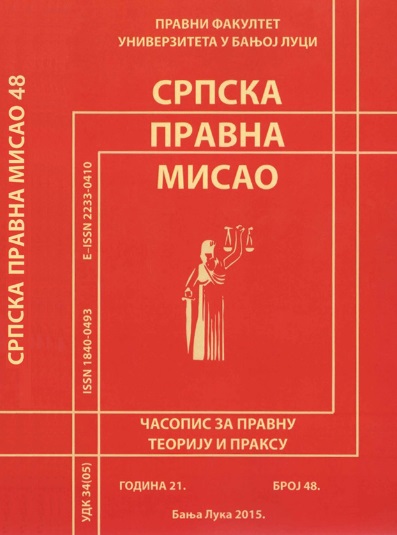

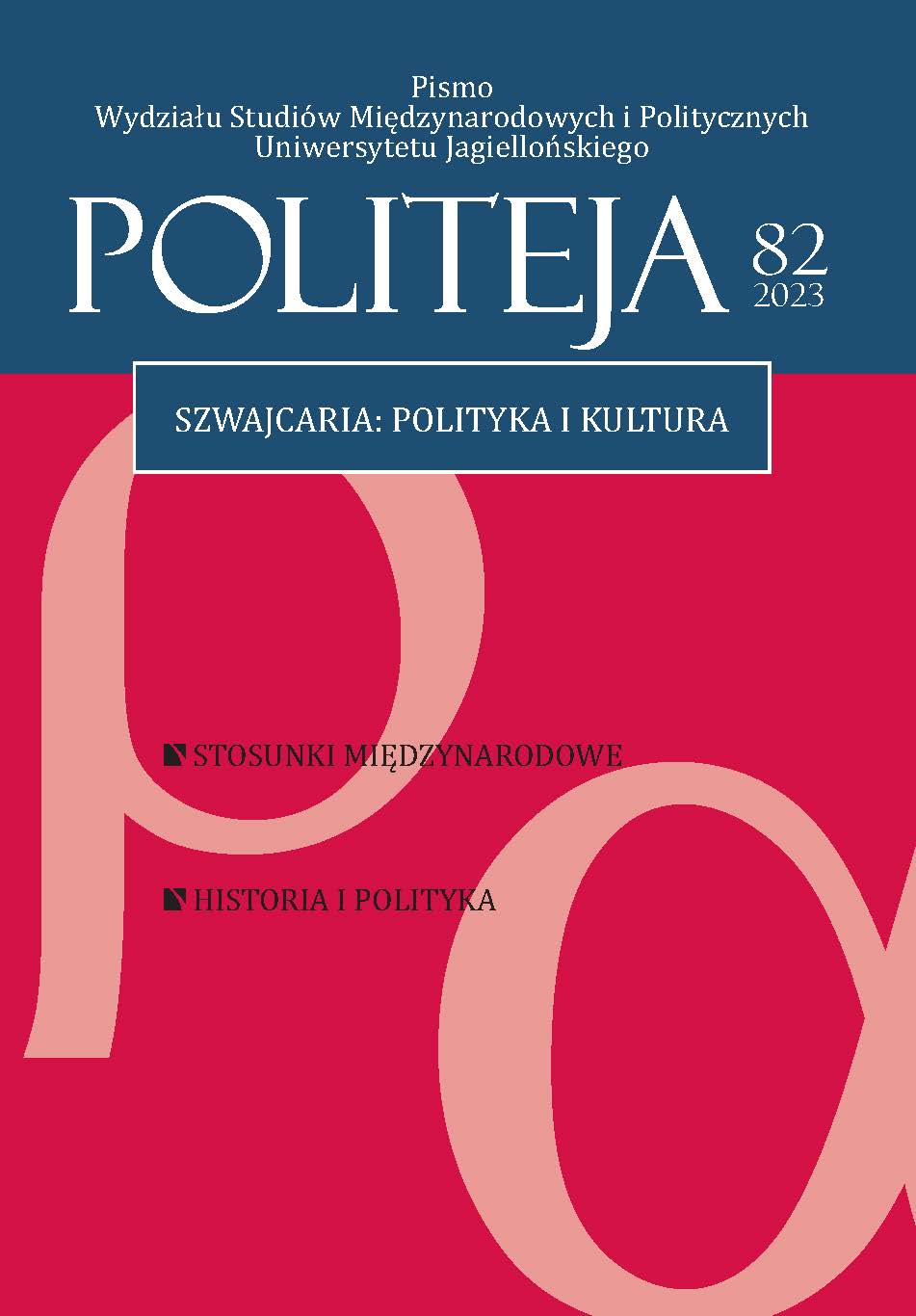
The article is devoted to the place of the sovereign’s veto in the constitutional systems of Switzerland and Liechtenstein in relation to the position of each within the system. Due to the very unique constitutional structure of Switzerland (a special role of the parliament, a wide catalog and high frequency of using direct democracy tools) and Liechtenstein (sovereign defined in two entities – the prince and the nation; the exceptionally strong position of the head of state, who has the right to veto both laws adopted by the parliament and motions in referendums), attempts were made to analyze the political position of sovereigns in both countries, relying solely on the right to block legal acts adopted by the parliament (refusal to sign the law by the prince in Liechtenstein and people’s veto in both countries).
More...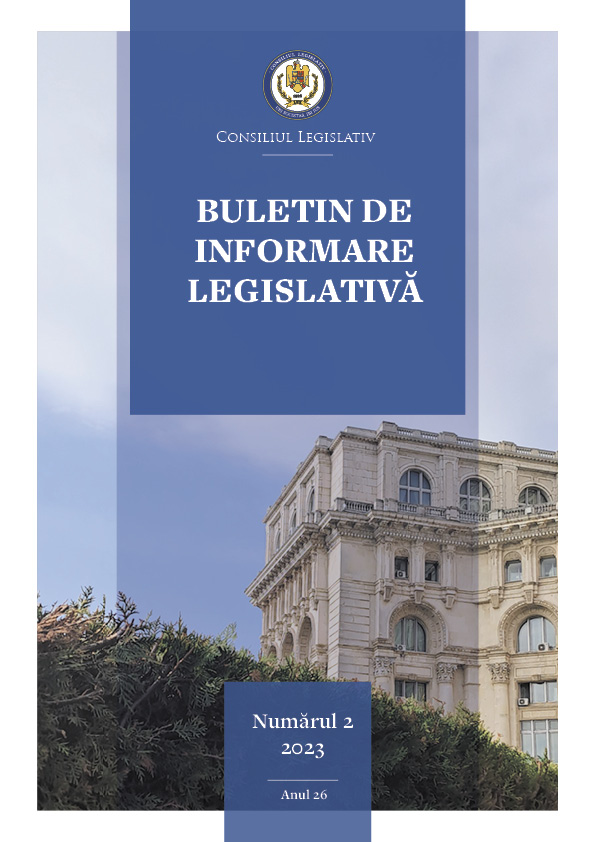
The rest leave granted to employees undergoing an „in vitro” fertilisation procedure was introduced by Emergency Ordinance No 26/2019 amending and supplementing certain legislative acts published in the Official Gazette, Part I, No 309 of 19 April 2019. Although it represents a right and its regulation is found in Law no. 53/2003 - Labour Code republished, with subsequent amendments and additions, the practical situations that an employer and his employee undergoing a fertilization procedure may face, do not find legislative solutions in the reference normative texts.
More...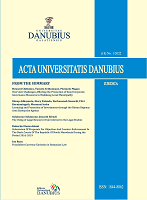
Issues concerning personal identity have not been discussed at European Union level given the limited competence of the Union in this area. Our paper provides an overview of the issue of fundamental rights related to identity. Some of these rights, such as the right to a name, were mainly claimed as parental rights, however the approach could be easily transposed to children as well, given the implications for their own rights. Our research aims to identify some essential aspects regarding the right to a personal identity, the right to know the origins falls within the scope of the child’s right to private life, establishing paternity requires the careful establishment of the balance between the child’s interest in knowing the identity and interest of the father presumed or claimed, as well as with the general interest. Also an adopted child has the right of access to information about his or her origin, and biological parents may be granted the legal right not to disclose their identity, but this does not amount to an absolute right of veto.
More...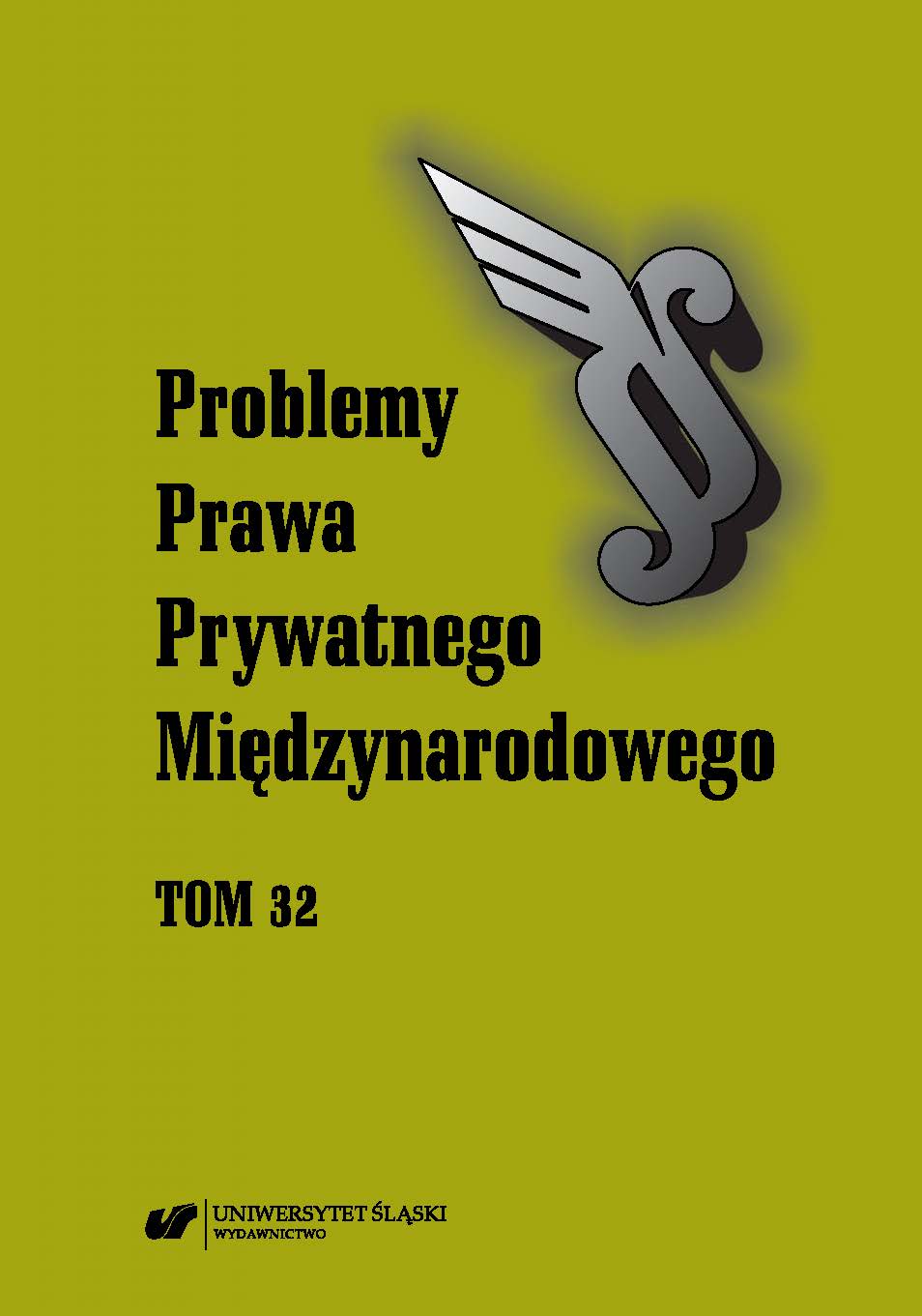
Mass inflow of Ukrainian citizens into Poland gives rise to many legal issues, including conflict-of-law questions about rights in rem held by such persons both in respect of property left in Ukraine and property brought to Poland. In the context of the prolonged stay of such persons in Poland, one crucial task may be, for example, to establish the law applicable to the disposal of their property brought to Poland under legal acts made in Poland. The Agreement between the Republic of Poland and Ukraine on legal aid and legal relationships in civil and criminal matters, done at Kiev on 24 May 1993, applicable in Polish-Ukrainian relations, devotes several provisions to those questions. However, the Agreement ignores the question of the law applicable to property law relationships having movable items as their objects. In particular, it does not designate the law applicable to contracts transferring the ownership of movable assets and contracts encumbering such assets with limited rights in rem. The relevant norms in this regard are conflict-of-law rules of the Polish Act of 04 February 2011 — Private International Law, and of the Ukrainian conflict-of-law Act of 23 June 2005, designating the law applicable to property. Accordingly, as long as movable items are located in Poland, Polish law will apply with regard to the respective property law relationships. This is provided for in Article 41 (1) of the Private International Law Act. However, Polish law will not apply to obligational and property rights having as their object immovable properties located in Ukraine, which is covered by Article 32 of the Agreement of 24 May 1993. In this regard, Ukrainian law is exclusively applicable. Under Article 41 (2) of the Private International Law Act, in the assessment of legal relationships relating to a movable property brought to Poland from Ukraine, one should also consider legal events taking place when the asset in question was still in Ukraine. However, the assessment of legal events having an impact on property law relationships taking place in Poland and relating to movable items brought back to Ukraine will be based on the Ukrainian law.
More...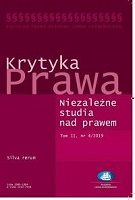
The issue of constitutional protection of natural resources does not arouse the interest of lawyers, including constitutionalists, in Poland. In none of the drafts of the new Constitution of the Republic of Poland presented after 1989 was this issue regulated. After the new Constitution of the Republic of Poland came into force in 1997, no draft amendment to this act dealing with natural resources was submitted either. The constitutional surveys conducted in 2011 and 2017 did not explicitly call for a complete or even very extensive amendment of the Constitution. Most often, they indicated the need for punctual amendments or concerning certain areas of constitutional regulation. In light of the experience with forest management, it would be advisable to extend constitutional protection to all strategic natural resources.
More...
The issue of constitutional protection of natural resources does not arouse the interest of lawyers, including constitutionalists, in Poland. In none of the drafts of the new Constitution of the Republic of Poland presented after 1989 was this issue regulated. After the new Constitution of the Republic of Poland came into force in 1997, no draft amendment to this act dealing with natural resources was submitted either. The constitutional surveys conducted in 2011 and 2017 did not explicitly call for a complete or even very extensive amendment of the Constitution. Most often, they indicated the need for punctual amendments or concerning certain areas of constitutional regulation. In light of the experience with forest management, it would be advisable to extend constitutional protection to all strategic natural resources.
More...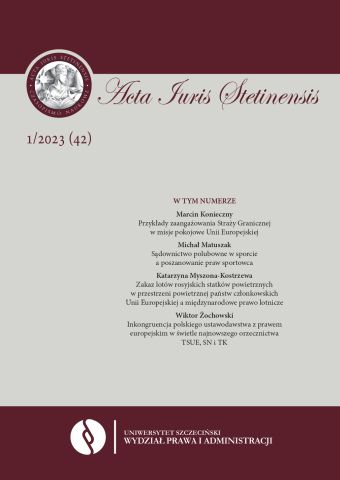
This study talks about a collision between Polish legislation and European law by analysing the latest case law of the Polish Supreme Court, the Court of Justice of the European Union and the Polish Constitutional Tribunal. The aim of this study is to investigate the consequences of conflicting judgments, both from the current perspective and in view of the future. This discussion constitutes a basis for reflecting whether the correct exercise of the right to a fair trial may be considered in the case of a contradiction between two legal orders applicable to a citizen. The author analyses this subject matter against judgments of European tribunals and Polish courts, using the available literature and commentaries and investigating the law in force. The methodology of the work consisting in confronting judgments that present divergent positions with the simultaneous presentation of scholarly opinions will allow the author to scrutinize the impact of the presented facts on the correct exercise of the right to a fair trial.
More...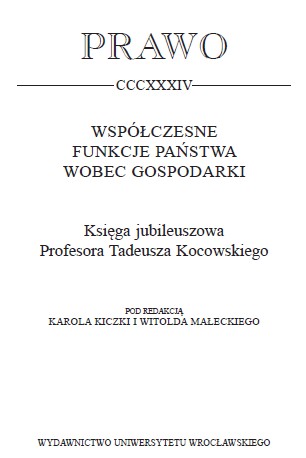
This study looks at the evolution of Swedish “economic law.” This branch of law formally does not exist in Sweden. The development of “economic law” in Sweden stems from contract law, and in recent decades, since the 1970s, there has been a noticeable development in commercial and economic law. The aim of the study is to describe the basic normative acts that constitute the foundation of Swedish contract law as well as commercial and economic law. By their nature, practical Swedes, in parallel with the development of legislation, have established bodies and institutions that allow for institutional protection of consumer rights and good practices in trade and services. It is an exceptionally effective and efficient mechanism. It allows the majority of disputes in the economy to be resolved amicably. Currently, the most dynamically developing part of Swedish “economic law” is related to consumer protection law and competition law. At the same time, the process of improving out-of-court dispute resolution between business entities and consumers is taking place.
More...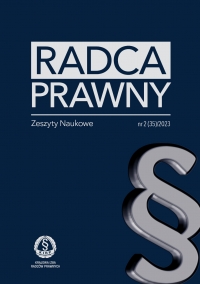
The resolution of the panel of seven judges of the Polish Supreme Court of June 21, 2023 (case file no. III CZP 94/22) is of utmost importance for legal practice. In the resolution, the Polish Supreme Court assumed that Article 2 of the Act of July 6, 2001 on preserving the national character of the country’s strategic natural resources does not exclude the possibility of usucaption of real estate constituting a state forest. Another important resolution of the Polish Supreme Court is the resolution of the panel of seven judges of June 14, 2023 (case file no. III CZP 84/22). As indicated by the Supreme Court, declaring the debtor’s bankruptcy does not cause the creditor’s loss of legitimacy to bring an action to declare the debtor’s legal act ineffective under Art. 527 of the Civil Code.
More...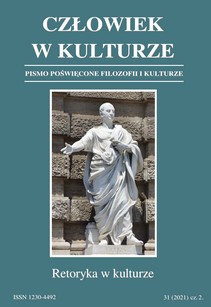
Der Titel meines Vortrags klingt einigermaßen provokativ und ist auch so gemeint. Seit dem Urteil des Bundesverfassungsgerichts zum assistierten Suizid und seinen voraussehbaren Folgen sind philosophisch-theologische Betrachtsamkeiten über Sterben und Tod wohl chancenlos. Das Gericht hat den Gesetzgeber mit seiner Entscheidung vom 26.02.2020 gehalten, den erst wenige Jahre bestehenden § 217 StGB (Verbot geschäftsmäßiger Beihilfe zum Suizid) wieder zu streichen und eine liberale Neuregelung der Selbsttötung freigestellt. Das war zu erwarten. Das deutsche Höchstgericht hat aber zugleich in einer nahezu totalitären Attitude die Gesellschaft aufgefordert, „die Entscheidung des Einzelnen, seinem Leben entsprechend seinem Verständnis von Sinnhaftigkeit der eigenen Existenz ein Ende zu setzen … als Akt autonomer Selbstbestimmung … zu respektieren.“ Ich frage mich: Wie kommt dieses Gericht dazu, den Bürgern unseres Landes vorzuschreiben, wie sie zu denken haben und seine Bewertung zu übernehmen? Ist eine weiß Gott gut begründbare Kritik an der Entscheidung des Gerichts jetzt ein rechtswidriger Mangel an Respekt, der künftig vielleicht geahndet wird – als „suizidophob“?
More...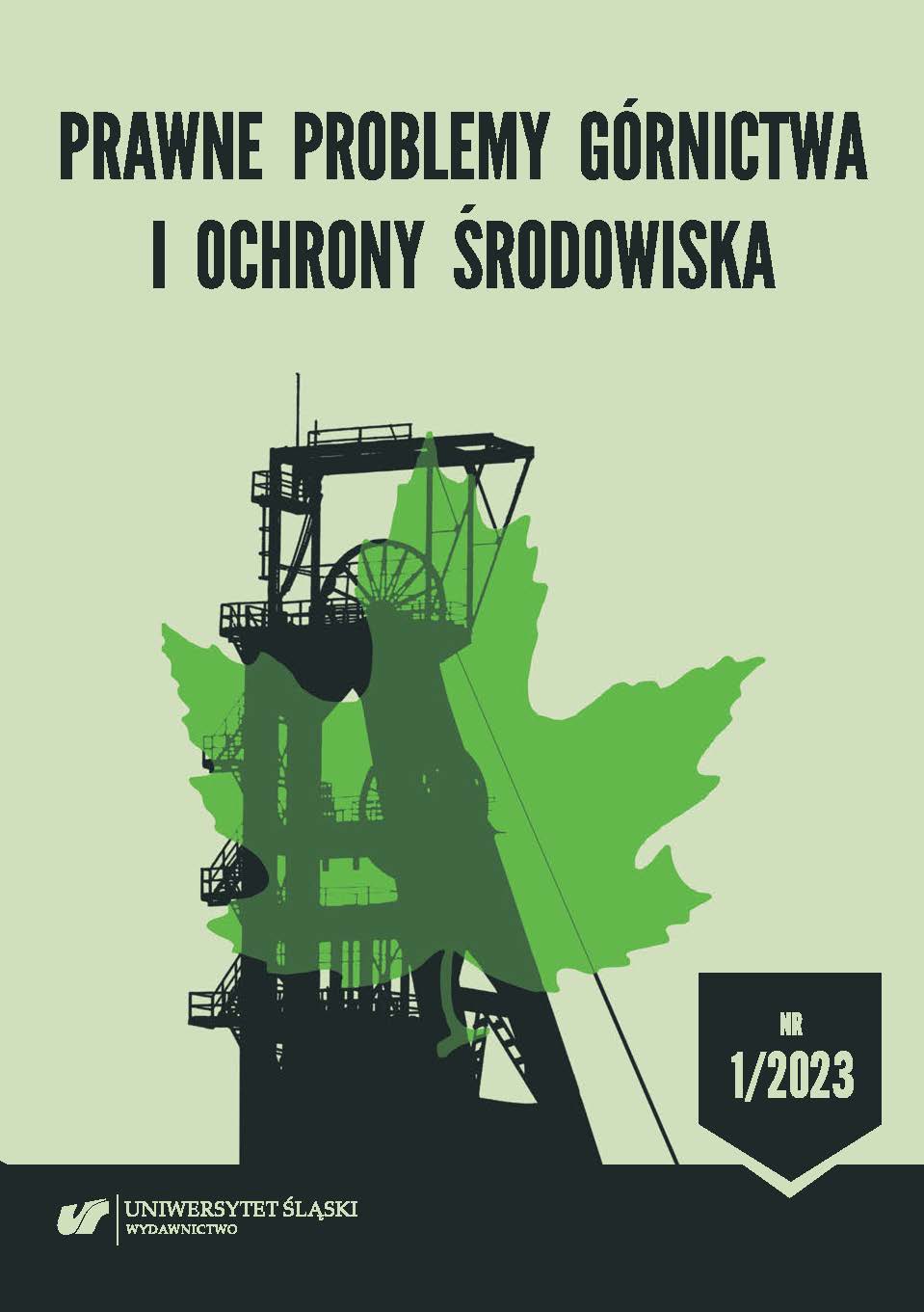
In the presented study, the author raised the issue of forensic science in revealing and securing traces left at the scene of the commission of forest damage. She characterizes both the essence of forest damage, its types and statistics of these acts in recent years, and a forensic examination of traces at the scene of the incident, along with a description of those most often performed at such acts. Considerations in this regard included forensic trace research in the fields of traseology, mechanoscopy and osmology.
More...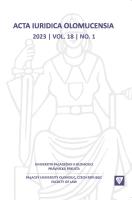
Was the first president of the Supreme Administrative Court, Dr. Emil Hácha, really without interest in political events, without political involvement, political experience and power ambitions? And what led the politicians of the Second Czech-Slovak Republic to elect him to the constitutional and political position of head of state?
More...